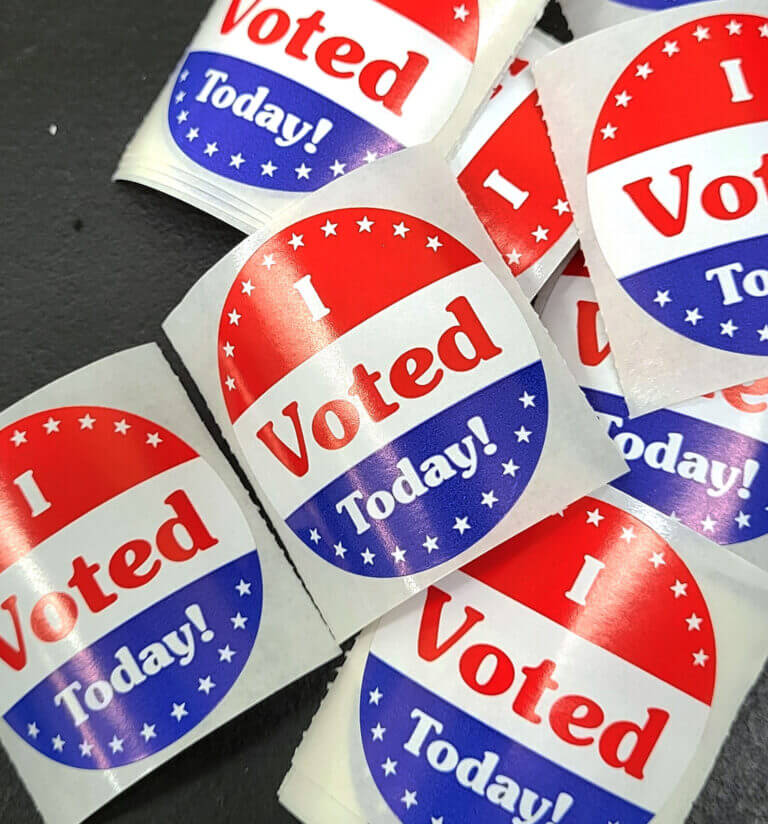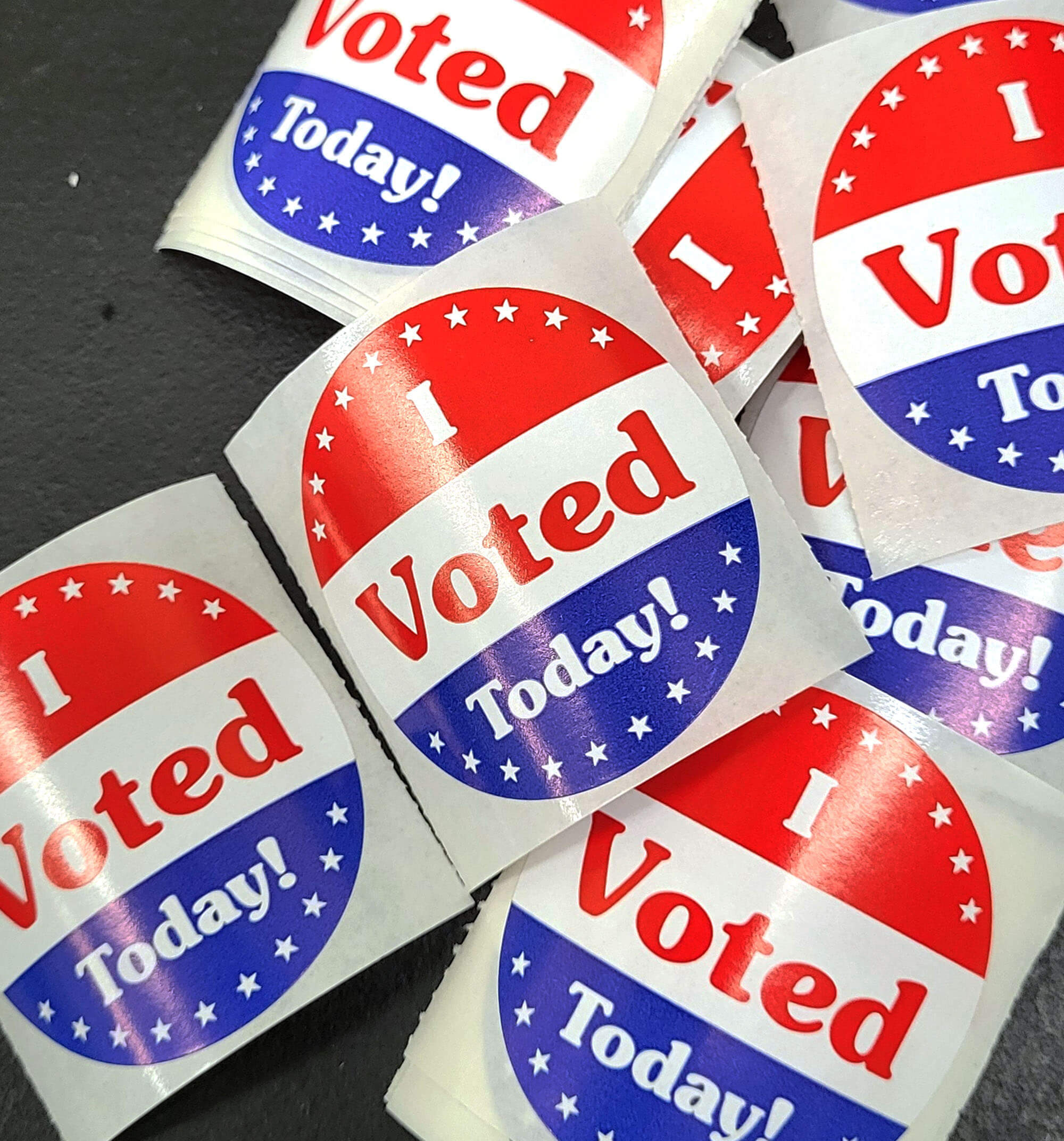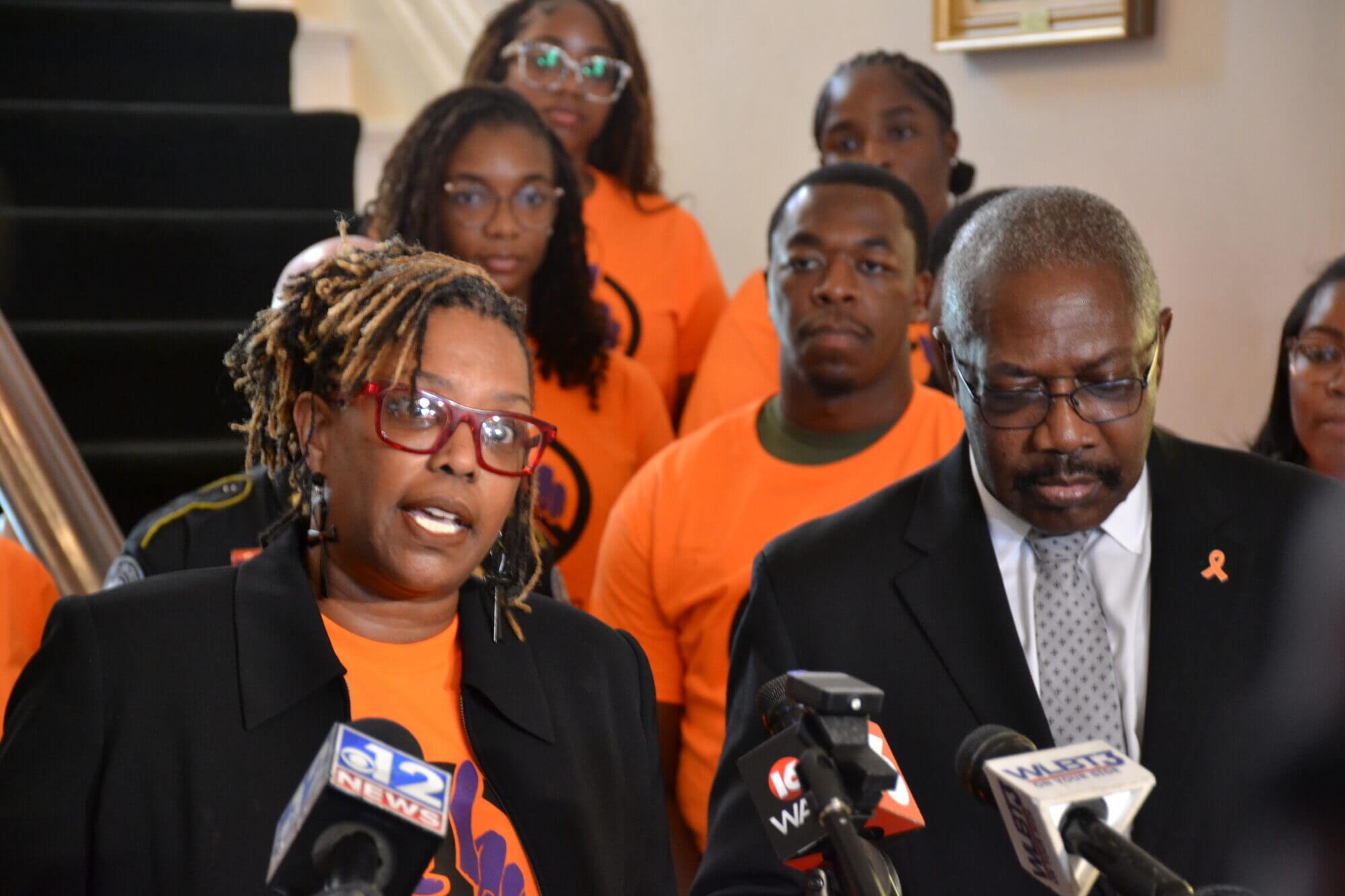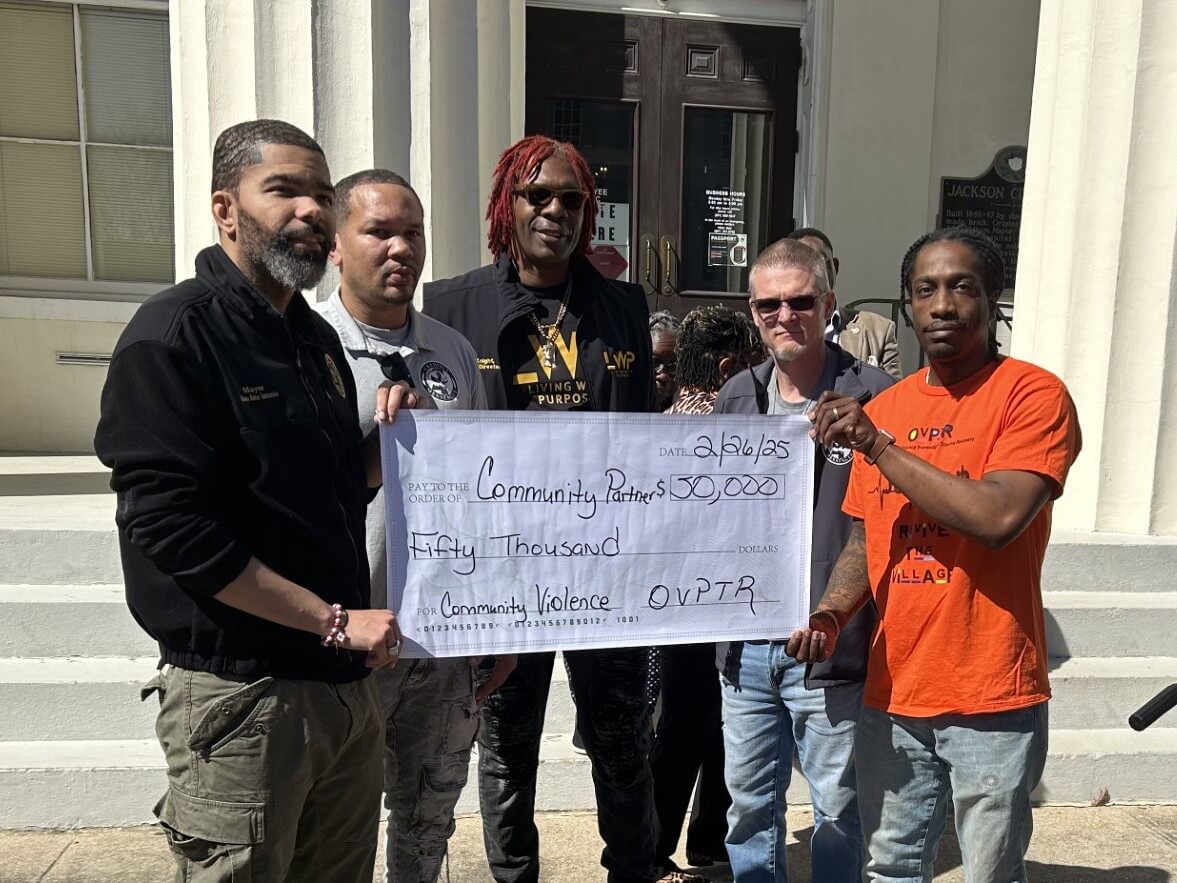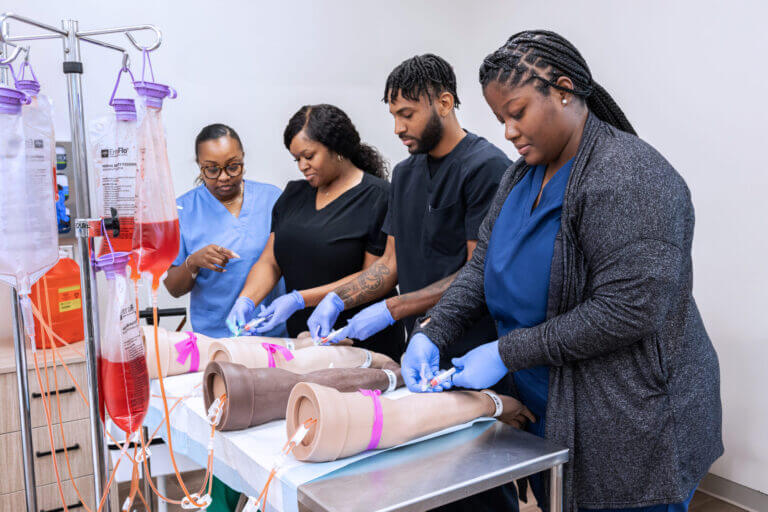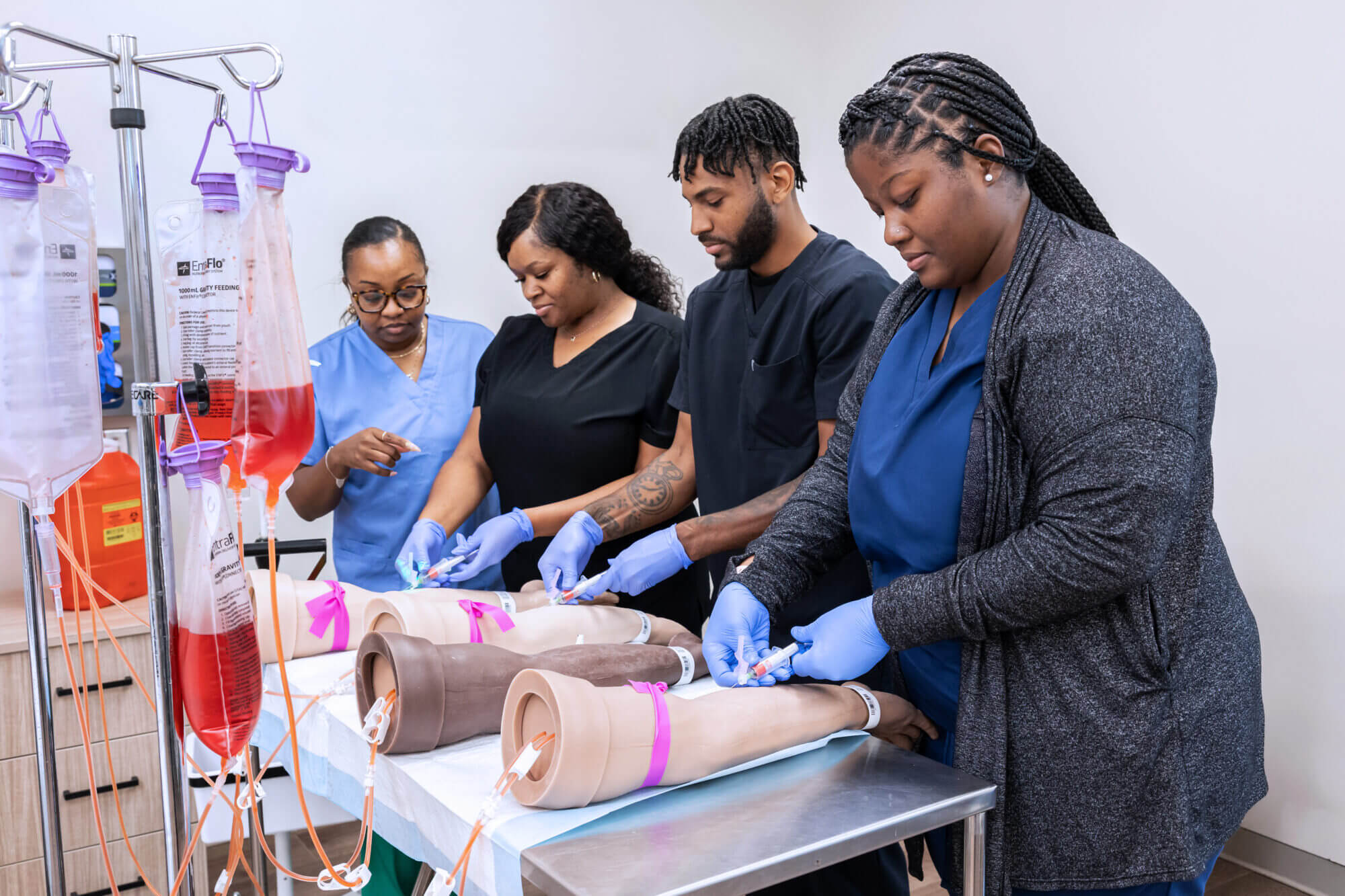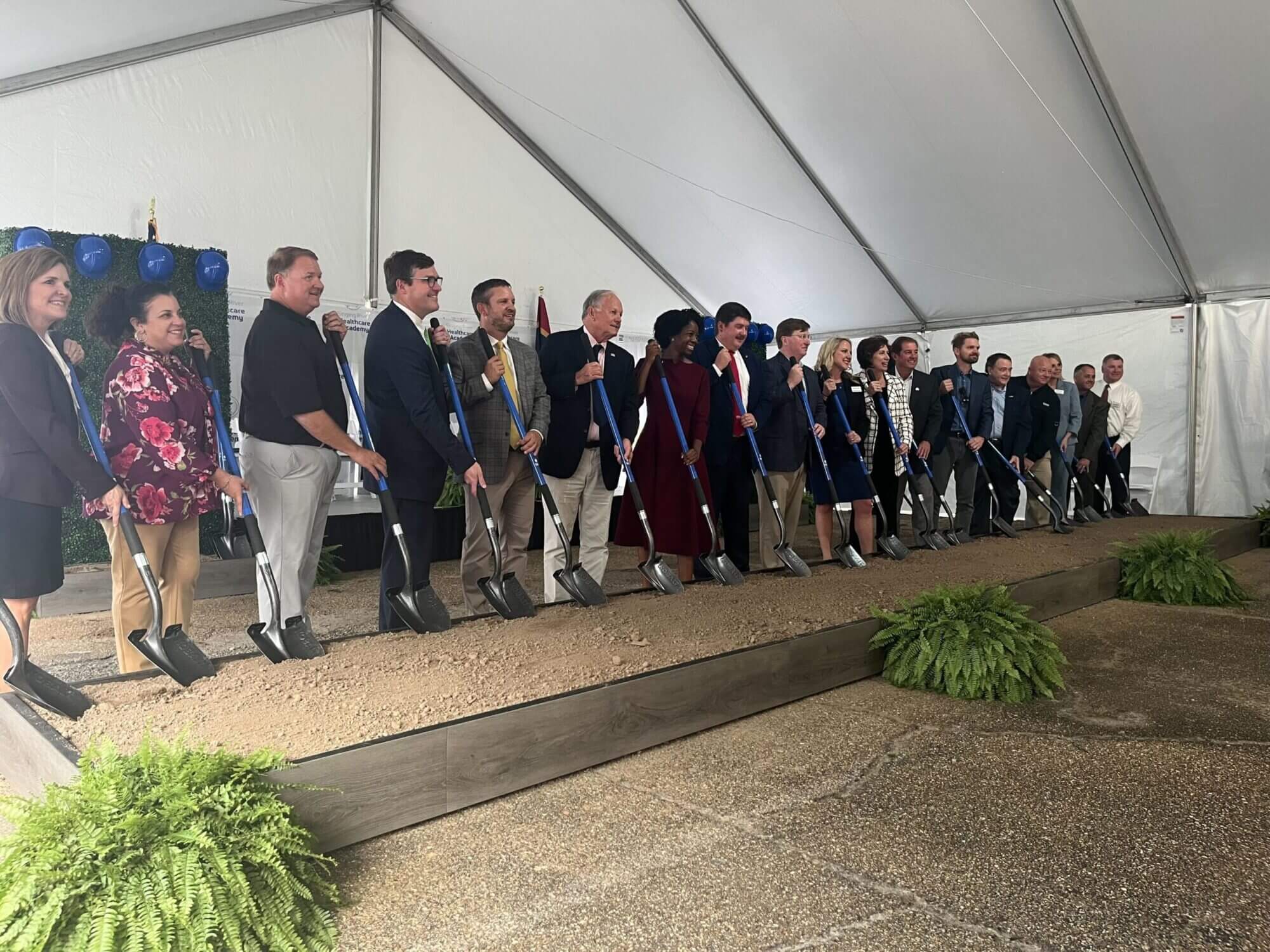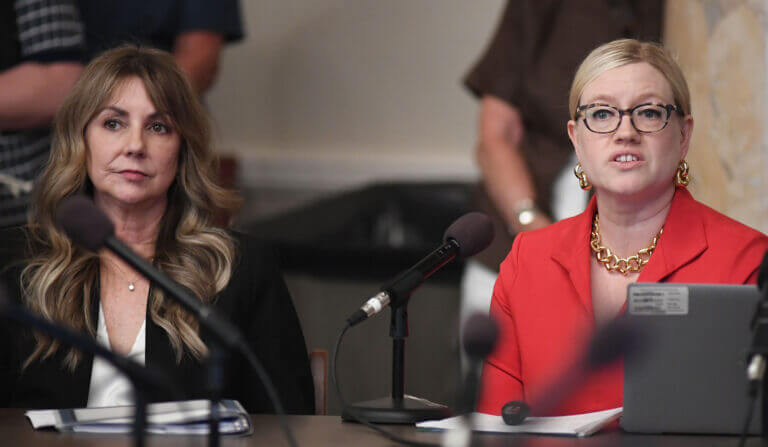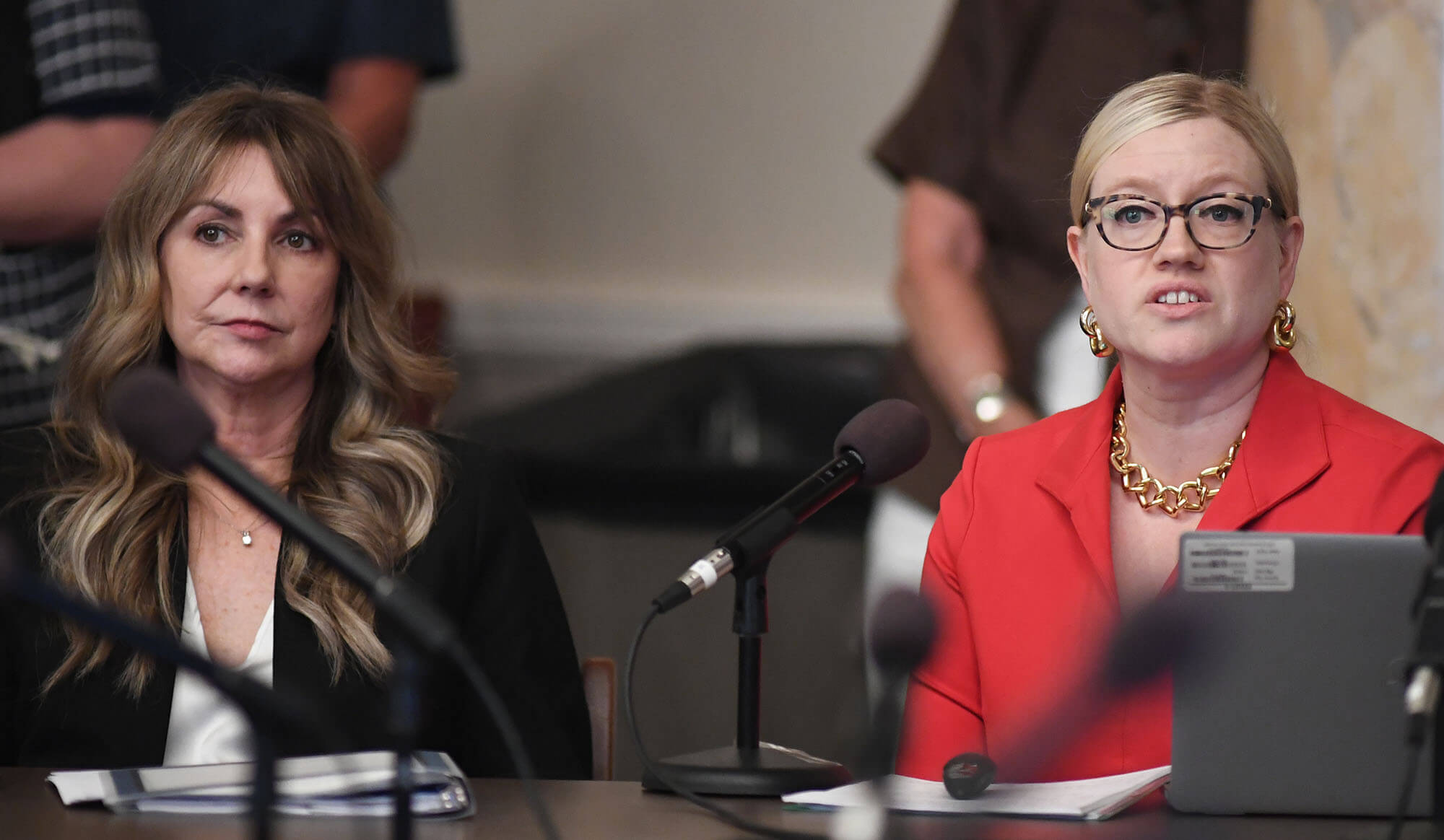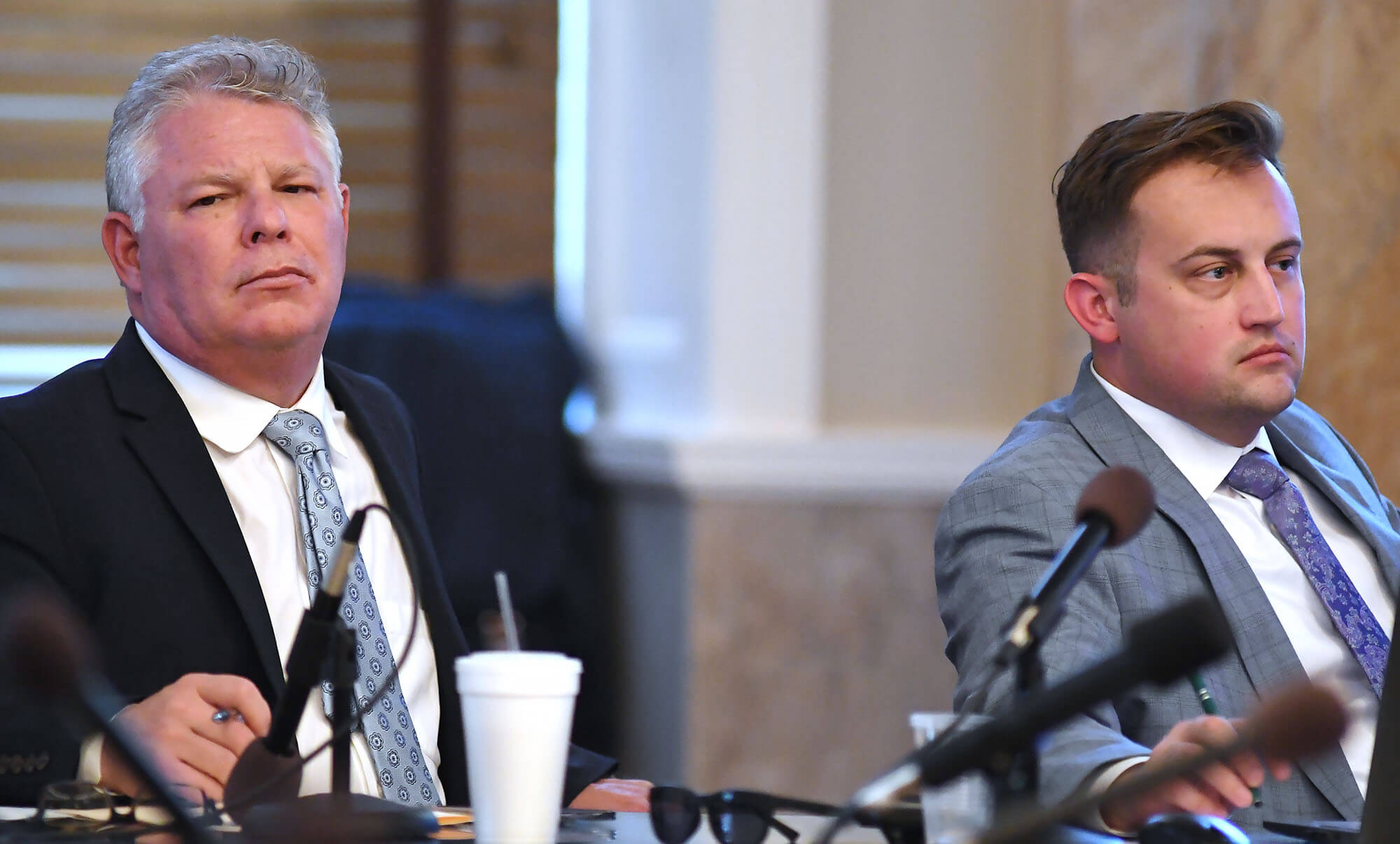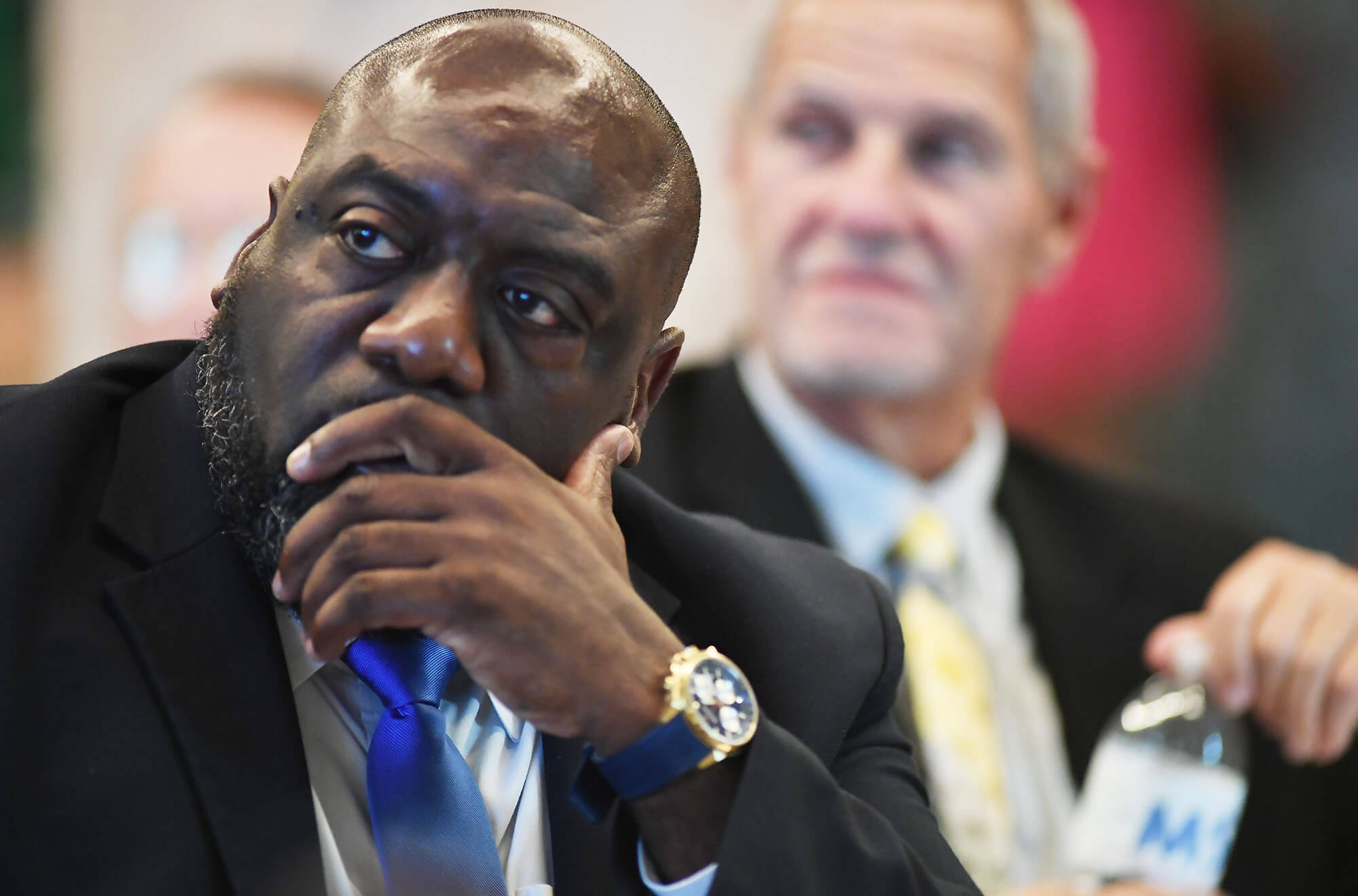
VICKSBURG – Makayla Shows pointed out a display cabinet in her dining room. It doesn’t have pottery, vases or fine china. Instead, it holds onesies, pacifiers and hospital bracelets.
“Isn’t that the smallest urn you’ve ever seen?” Shows asked, looking toward the second shelf.

Makayla and Carson Shows’ daughter Mazeigh died in 2023 in a hospital after she was found unresponsive at First Baptist Children’s Center in Brandon. She was 3 months and 3 days old.
That year, deaths of 40 children were reported in day care centers across the U.S. But 16 states, including Mississippi, had incomplete numbers or no recorded data.
Day care deaths in the U.S. are rare, but complaints about injuries, neglect, abuse and unsafe conditions are more common. Together, they paint a picture of an industry without enough resources to guarantee safety for young children at a price that parents can afford to pay.
Advocates and industry experts say the problems are driven by staffing shortages, low pay and a lack of oversight, and are indicative of a deeper problem: an undervaluation of caregiving and early education in the U.S.

The medical examiner’s report on Mazeigh’s death says she was put in an unsafe sleep position, on her side in a crib, at day care and that a worker a short time later found Mazeigh “unresponsive.”
Makayla Shows said several details from that day still haunt her.
“I just remember them wheeling her out to the ICU, and she was already purple,” she recalled. “She didn’t look real. She didn’t smell like my baby.”
First Baptist Children’s Center did not respond to multiple requests for comment in recent weeks from Mississippi Today.
Across the country, the industry is responsible for 11 million children under the age of 5 – the most critical years for learning and development, research shows.
Many have long argued that the work of early child care deserves more respect and investment, and that the education that occurs – or doesn’t – in those early years is just as important as K-12 education.
Like most systemic problems, the solution isn’t simple, especially in a country that values capitalism and limiting the government’s role in families’ private lives. Still, experts say it’s long past time to make child care consistently safe, functional and affordable, and the solution will require more than just the argument that it allows parents to go back to work.
“Ultimately, if you want to move to a system where all families have the child care that they need and their children need to flourish and live the family life that they want to live, we’re going to need more than just attaching parents to the labor force,” said Elliot Haspel, a nationally recognized child and family policy expert based in Colorado. “We need to see child care as an essential part of our social infrastructure just like parks and roads and libraries and schools and all these other things that let our communities thrive.”
Unaffordable costs and unlivable wages
On a hot day in June, Shows scrolled through photos on her phone of her older daughter Luna Scott sitting on the floor with Mazeigh the morning before Mazeigh died.
“Those were the last ones,” Shows said. “Sometimes I can go through them, and sometimes I can’t.”
Luna, now 10, spent most of the morning running in circles around the kitchen table asking her mom if she can make cookie dough and whether they can all go swimming later. But when her mom struggles to find words to talk about Mazeigh, Luna quiets and walks over to put her arms around her mom, who tells Luna, “I’m fine.”
“Those tears in your eyes says otherwise,” Luna remarked in a comedic drawl, and her mom laughed.
They have each other, and Makayla and Carson Shows welcomed another daughter, Juniper, in 2024. But Makayla Shows struggles with the guilt of staying home with her children, something that is only possible because of the settlement they reached in the wake of Mazeigh’s death.

“We don’t have money problems, we don’t have many bills, we have a beautiful child, we have all these blessings – and I feel guilty,” she said. “Because it wasn’t because we worked for it. It was because something terrible happened.”
On average, it takes 10% of a married couple’s median income to afford the nation’s average cost of child care, according to Child Care Aware, a national advocacy group. That number rises to 35% for a single parent. The U.S. Department of Health and Human Services concluded child care is unaffordable if it exceeds 7% of a family’s income.
The U.S. has the highest child care costs in the world, according to the World Economic Forum – something that hasn’t translated into higher quality standards.
Out of 41 high-income countries, the U.S. ranked second to last on child care policies, according to a United Nations Children’s Fund report. The report evaluated the accessibility of child care for young children whether countries had nationwide paid parental leave policies. It also assessed quality measures such as child-to-teacher ratios, minimum qualifications for teachers and affordability.
Makayla and Carson Shows aren’t sure what they could have done differently. Back in the summer of 2022, they splurged on a small house in Brandon near Luna’s school and Mazeigh’s day care. Makayla took two weeks of unpaid parental leave after giving birth to Mazeigh before returning to work. It was as much time as the family could go without pay.
They made sure to include in their daughter’s day care notes that Mazeigh was only to be laid to sleep on her back – a long held public health recommendation that was especially important because she had torticollis, a condition that causes a baby’s neck muscles to tilt and can make a baby more susceptible to suffocating.
At the time they thought the instruction was overly cautious, since the day care’s internal guidelines mandated employees only put infants to sleep on their backs, and national guidelines recommend the same.

Between 2017 and 2023, Mississippi child care facilities were cited at least 20 times for unsafe sleep practices, according to Mississippi State Department of Health records. It’s not a large number, but the fact that it happens at all is significant, said Grace Reef, president of the Early Learning Policy Group in Washington.
“When there is a tragedy involving an infant in safe sleep, it points to training,” Reef said. “Does the provider understand safe sleep – not just the requirement but the reason for it?”
The center in Brandon did not respond to Mississippi Today’s specific questions about why Mazeigh was placed on her side that morning.
The facility was fined $500 for failing to prevent Mazeigh’s death, an additional $200 for leaving children unattended that day and $50 for unsafe sleep practices. The facility agreed to stop caring for infants under the age of 1, according to a 2023 statement by the Mississippi State Department of Health.
“Infant care was suspended, pending our investigation,” the statement said. “The facility subsequently entered into a consent agreement voluntarily surrendering infant care of the program until further notice.”
Mississippi Today reviewed investigations into First Baptist Children’s Center by the Mississippi State Department of Health in the year leading up to Mazeigh’s death. The records showed no other deficiencies related to unsafe sleep practices and no other deaths. They also showed no other serious injuries that resulted in penalties.
Sometimes, low staffing and lack of oversight at U.S. day care centers result in tragedy. But more often, they result in less egregious but potentially lasting harm, such as bad teaching practices.
A common example is the way many facilities encourage silence, even though research recommends engaging young children with back-and-forth exchanges, said Cathy Grace, who founded the Early Childhood Institute at Mississippi State University.
“I can’t tell you the number of child care facilities I’ve been in where it was ‘shh-shh-shh,’ thinking that what the school wants them to do is not talk, which may be, but that’s not good practice,” Grace said.
According to Grace, problems arent’ unique to Mississippi, though the state has the lowest median hourly wage for child care workers at $9.44 and the second-largest percentage of early childhood educators living in poverty.
“If you talk to people across the country, the answer’s the same,” Grace said. “We have very low salaries. That doesn’t promote longevity within the staff in many of the centers. Right now, we have fast food places and service places that actually pay almost twice as much.”
Public investment and other solutions
Many countries have struggled with child care, but the acuteness of the problem in the U.S. is unparalleled, said Haspel, the Colorado-based expert in family policy.
“Where the U.S. really stands alone is that we haven’t done much to fix the problem,” Haspel said.
Much of it comes down to longstanding economic practices.
“The way that free market economics works is: One person is making six cars every day, and eventually that person is involved in making 60 cars and then 600 cars a day,” Haspel said.
“Their productivity goes up and so their wages go up and the profit goes up and that’s the whole system of how capitalism works,” he said. “It doesn’t work in care. The market can’t reward care because care will never meet the capitalist definitions of productivity in the same way.”
That means that parents are sometimes forced to put their children in subpar child care centers so they can return to work themselves.
“With Luna, my whole life was completely different,” Shows said of her first daughter. “I was young, had no job, lived with my mom. But as an adult, when I was doing the right things, being a responsible adult, my child died. How do you reconcile that?”

Child care can’t become more safe and functional without public investment. That may seem counter to U.S. values, but examples of successful public investment in child care are starting to sprout up in red and blue states.
In New Mexico, Democratic Gov. Michelle Lujan Grisham established an Early Childhood Trust Fund in 2020, investing $300 million largely from oil and gas revenue. By the end of 2024, the fund had risen to over $9 billion, a portion of which goes toward making child care free for most families.
Vermont, which has a Republican governor and Democratic-controlled legislature, passed a small payroll tax in 2023 – three-quarters of which is paid by employers – that will generate about $120 million to increase salaries for child care workers and make the system more affordable for families.
Republican-led Texas passed several child care bills this year, including one that turned $100 million in previously unallocated federal funds into child care scholarships to benefit nearly 95,000 children.
This year, the Mississippi Legislature appropriated $15 million for child care vouchers for low-income families, which will help reduce the number of children on the waitlist after pandemic-era funds ran out. However, it won’t do anything to add resources or staff to facilities.
Data around incidents like Mazeigh’s death are critical to forming state policies. That information is scarce, according to the only comprehensive national study about deaths in child care that was conducted in 2005 by researchers at the City University of New York Graduate Center.
“Key to any effort aimed at reducing risks is gathering consistent, reliable data on fatalities, serious injuries, and near misses in child care,” the researchers wrote.
“Unlike fatalities or serious injuries in public schools, harms to children in child care have been largely invisible, with only a few gaining widespread media attention. This has hampered efforts to understand patterns and devise prevention strategies.”

While public discourse on the issue remains quiet, for parents like Makayla and Carson Shows, every day is a reminder of a future that won’t come to be.
“Me and grief won’t be sharing cookies and a cup of tea,” Makayla wrote in her journal. “I will have to fight it off with blood, sweat and tears. People talk of acceptance, this is not one of those times. Losing your baby, your infant child, feels like the loss of the future. You don’t know who you are or what you are or what your goals were before. You only know after.”
Mississippi Today’s Gwen Dilworth, Brian Howey and Nate Rosenfield contributed to this report.

